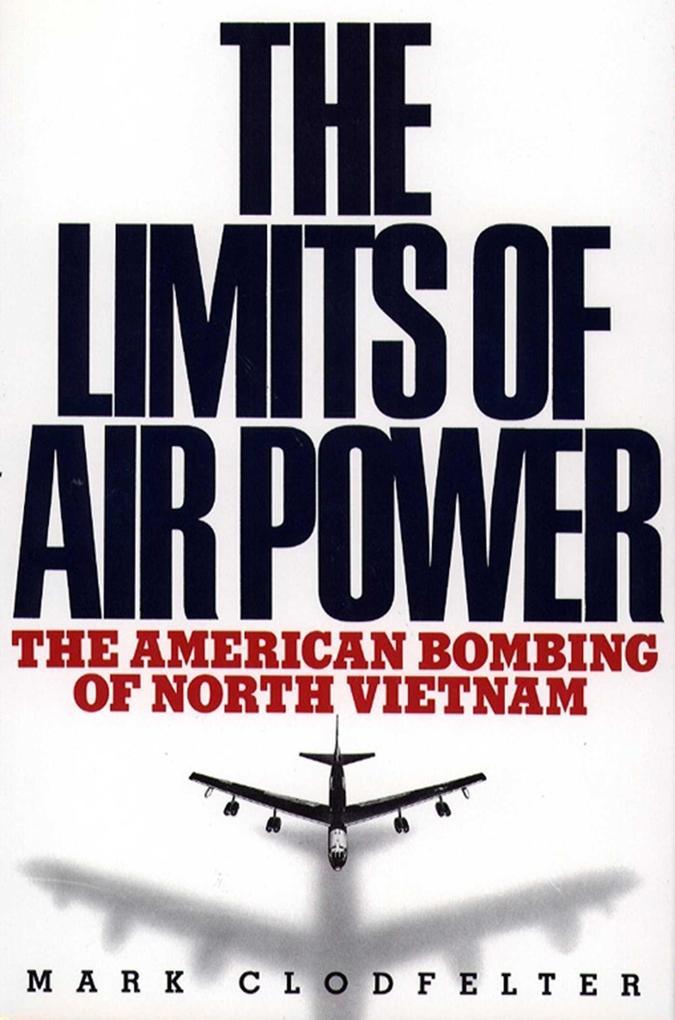
Sofort lieferbar (Download)
The Limits of Air Power analyzes the American bombing campaigns in Vietnam and shows why the use of air power, so effective in previous wars, proved unsuccessful in a limited war.
Major Mark Clodfelter, a military historian, assesses the American use of air power from World War II through the Vietnam War, and shows how its effectiveness declined in Vietnam when air commanders and political leaders were faced with a very different kind of conflict than they had previously experienced. During World War II there was a very clear military objective destruction of the Axis powers, in which the critical role of air power culminated in the detonation of two atomic bombs over Japan. During the Korean War, the threat of aerial attacks against North Korean dams hastened that war's conclusion. But in Vietnam where the enemy fought a guerrilla war and was not dependent on supply lines, and where no industrial economy existed the threat of air power had less effect. The lessons learned from Vietnam, says the author, must become a part of Air Force doctrine going forward, and we ignore the lessons at our own peril. The New York Times praised The Limits of Air Power as a courageous book. . . . It will enlighten any citizen interested in knowing whether the Air Force is prepared to do its job.
Major Mark Clodfelter, a military historian, assesses the American use of air power from World War II through the Vietnam War, and shows how its effectiveness declined in Vietnam when air commanders and political leaders were faced with a very different kind of conflict than they had previously experienced. During World War II there was a very clear military objective destruction of the Axis powers, in which the critical role of air power culminated in the detonation of two atomic bombs over Japan. During the Korean War, the threat of aerial attacks against North Korean dams hastened that war's conclusion. But in Vietnam where the enemy fought a guerrilla war and was not dependent on supply lines, and where no industrial economy existed the threat of air power had less effect. The lessons learned from Vietnam, says the author, must become a part of Air Force doctrine going forward, and we ignore the lessons at our own peril. The New York Times praised The Limits of Air Power as a courageous book. . . . It will enlighten any citizen interested in knowing whether the Air Force is prepared to do its job.
Produktdetails
Erscheinungsdatum
18. Mai 1989
Sprache
englisch
Seitenanzahl
297
Dateigröße
2,38 MB
Autor/Autorin
Mark Clodfelter
Verlag/Hersteller
Kopierschutz
mit Adobe-DRM-Kopierschutz
Family Sharing
Ja
Produktart
EBOOK
Dateiformat
EPUB
ISBN
9781439105429
Entdecken Sie mehr
Pressestimmen
"[Clodfelter] has done us all a great favor with this book because he has stimulated thinking about our past and our opportunities for the future. He has graphically told the story of political indecision in the use of military force for limited objectives."--"Airpower Journal"
Bewertungen
0 Bewertungen
Es wurden noch keine Bewertungen abgegeben. Schreiben Sie die erste Bewertung zu "Limits of Air Power" und helfen Sie damit anderen bei der Kaufentscheidung.









